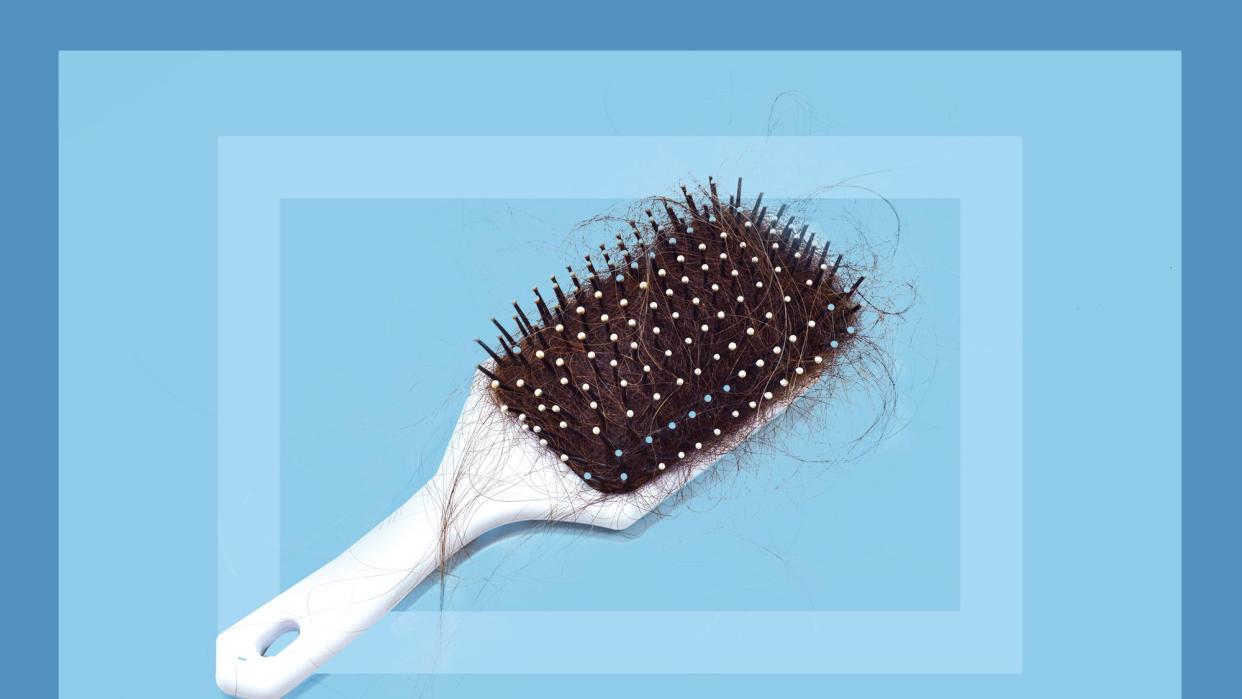This Viral TikTok Shows What Can Happen When You Don't Clean Your Hairbrush

Adobe Stock
By now you (hopefully!) know that your favorite beauty tools — from your makeup brushes to your shower loofah — need a little TLC from time to time. But one TikTok clip making the rounds shows what can happen when you don't thoroughly clean your hairbrush. And yes, it's equal parts gross and fascinating, especially if you've never thought you needed to clean a hairbrush.
TikTok user Jessica Haizman recently shared what happened when she gave her hairbrushes a 30-minute "bath" in the sink, asking her followers: "Have you ever cleaned your hairbrushes? And I'm not just talking about pulling the hair out of the hairbrushes — we all know to do that once in a while."
Haizman claimed in her video that "you're supposed to clean your hairbrushes once every two weeks." She then detailed the method she used to get her brushes squeaky clean: She began by pulling out "as much hair as [she] could" with the help of a fine-tooth comb. Then she put her brushes in a sink filled with water and a mixture of baking soda and shampoo and worked the mixture into the brushes before letting them soak for 30 minutes.
"Immediately, the water started turning brown and gross," she shared, showing the rust-colored water that remained after the 30-minute soak. "Here's what the water looked like, and I don't dye my hair or use much product," she added. (Ick.) She ended by rinsing each brush "really well" and letting them air dry thoroughly by laying each brush flat on a dry towel. Related: This Viral Video Shows What Can Happen to Your Skin When You Use Makeup Wipes
If you're more than a bit grossed out by this revelation (understandable!), the good news is you probably have very little to worry about, even if you've been neglecting to clean your hairbrushes.
"The only reason that you should have to clean your hairbrush is to minimize parasites and excessive amounts of bacteria or fungus living on your hairbrush," says William Gaunitz, certified trichologist and founder of Advanced Trichology. "If you have an excessively oily scalp and/or any scalp condition, such as dandruff or itchy scalp, you may be experiencing an overgrowth of bacteria or fungus." In that case, continues Gaunitz, you'll want to clean your brush about once every week or so, because "you could easily continue to re-infect your hair and scalp every time you use your hairbrush with whatever is living on your hairbrush." (Related: Scalp Scrubs Are the Missing Link In Your Hair-Care Routine)
That said, even if your scalp isn't excessively oily or you don't have a scalp condition, Gaunitz says it's still a good idea to clean your hairbrush once every eight to 12 weeks because, regardless of your hair-care routine or hair health, everyone has some natural buildup on the bristles of their hairbrushes. "Even if you don't use a lot of product, naturally when you brush your hair, you are exfoliating skin cells, scalp oil (sebum), and dead hairs that end up wrapping around the bristles of the brush," explains Gaunitz. "Dirt, debris from the environment, parasites, fungus, and bacteria can all end up living on and around" the brush, he continues. "These little, microscopic creatures are naturally living on our scalps normally, but at an excessive level, they can cause hair loss and scalp irritation," says Gaunitz.
As with any skin, hair, or scalp issue, if you're experiencing itchy, dry, flaky scalp or anything else that concerns you, check in with your doc. But if you simply want to make a more concerted effort to scrub your hairbrushes from time to time, Gaunitz co-signs Haizman's recommendation to use a half-cup of baking soda mixed with water. However, he suggests adding tea tree oil, rather than shampoo, for the perfect one-two punch. "Using something alkaline, such as baking soda, will increase the pH and assist in breaking down hardened materials on the hairbrush. But you must additionally address the microbial overgrowth potential," he explains. Tea tree oil will help kill the parasites, fungus, and bacteria, he says. (ICYDK, tea tree oil can also be a great acne spot treatment.)
And if you want to help keep your hair and scalp healthy overall, you might want to switch over to a boar-bristle brush, adds Gaunitz. "The soft, yet rigid bristles naturally move sebum around the scalp, exfoliate dead skin cells, and seem to be resistant to excessive buildup on the bristles," he explains. "Realistically, though, any high-quality, wide-tooth, mildly-rigid brush should be just fine for the average person as long as they're cleaning it regularly." (Try this Mason Pearson dupe that's just as good as the cult-favorite boar bristle brush.)

